- 0086-571-85302990
- sales@greenskybio.com
Organic non - genetically - modified konjac powder.
2024-11-30

1. Introduction to Konjac
Konjac, a plant indigenous to Asia, has a long - standing history in traditional Asian cuisines. For centuries, it has been an integral part of the local diet, with its unique properties being recognized and utilized.
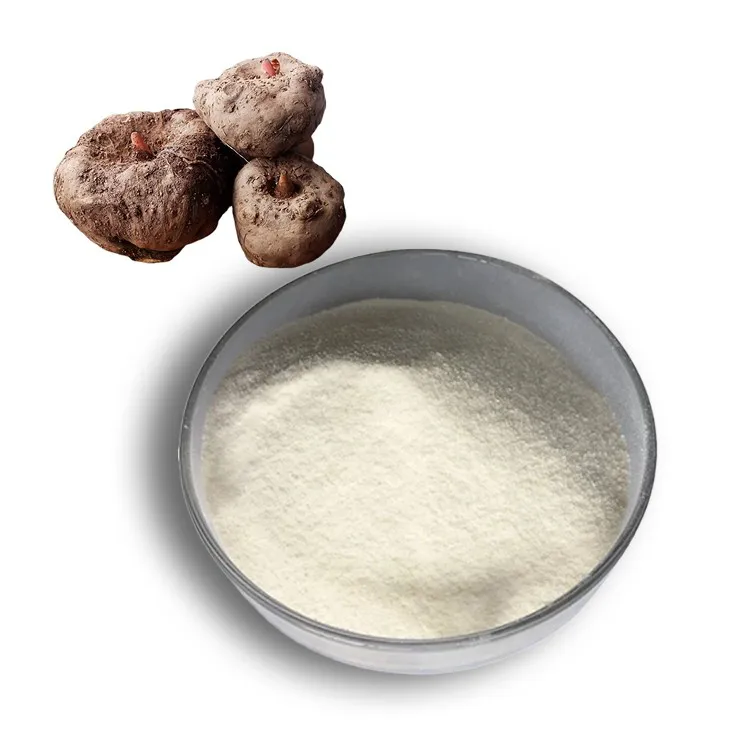
2. The Organic and Non - Genetically - Modified Aspects
The term "organic" when associated with Konjac Powder implies that during its growth, no synthetic pesticides or fertilizers were employed. This is of great significance as it reduces the potential exposure of consumers to harmful chemicals that might be present in conventionally grown products. Moreover, being non - genetically - modified (non - GMO) is another crucial factor. In today's world, where consumers are becoming more and more cautious about GMOs, organic non - transgenic Konjac Powder offers a natural and pure alternative. GMO - free products are often perceived as more in line with nature and potentially safer for long - term consumption.
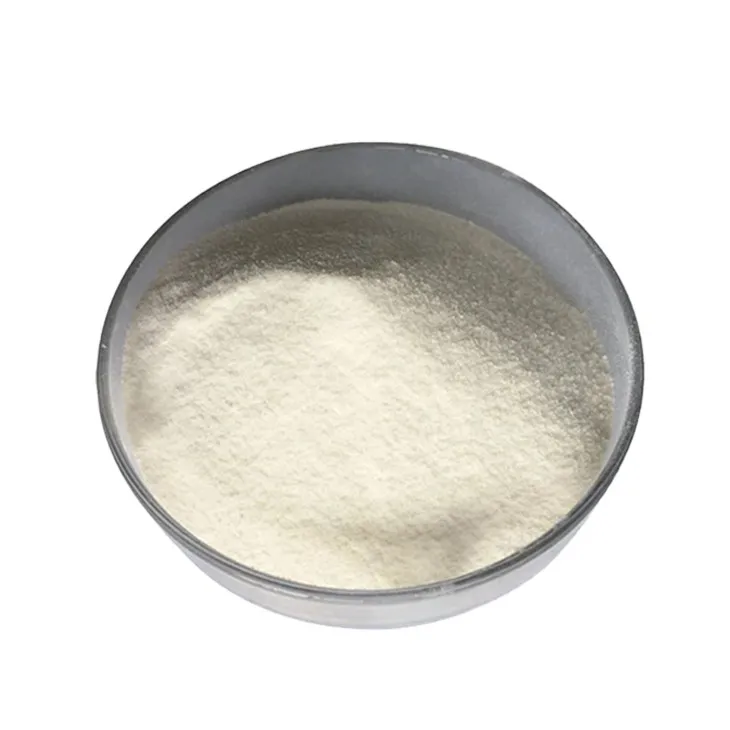
3. Health Benefits of Konjac Powder
3.1 Rich in Glucomannan
One of the most notable features of konjac powder is that it is rich in glucomannan, a type of dietary fiber. This fiber plays a vital role in maintaining good health. For instance, it can significantly aid in digestion.
3.2 Promotion of Digestion
By promoting regular bowel movements, glucomannan in konjac powder helps to keep the digestive system functioning smoothly. It can effectively prevent constipation, which is a common digestive disorder. This is especially beneficial for those with a sedentary lifestyle or those who do not consume an adequate amount of fiber in their regular diet.
3.3 Weight Management
Another remarkable benefit of konjac powder is its role in weight management. It has the ability to absorb a large amount of water, which in turn gives a feeling of fullness. When consumed, it can reduce the overall calorie intake as it curbs the appetite. For individuals who are trying to manage their weight, konjac powder can be a valuable addition to their diet. It can be used as a substitute for high - calorie foods, providing a more satiating yet low - calorie option.
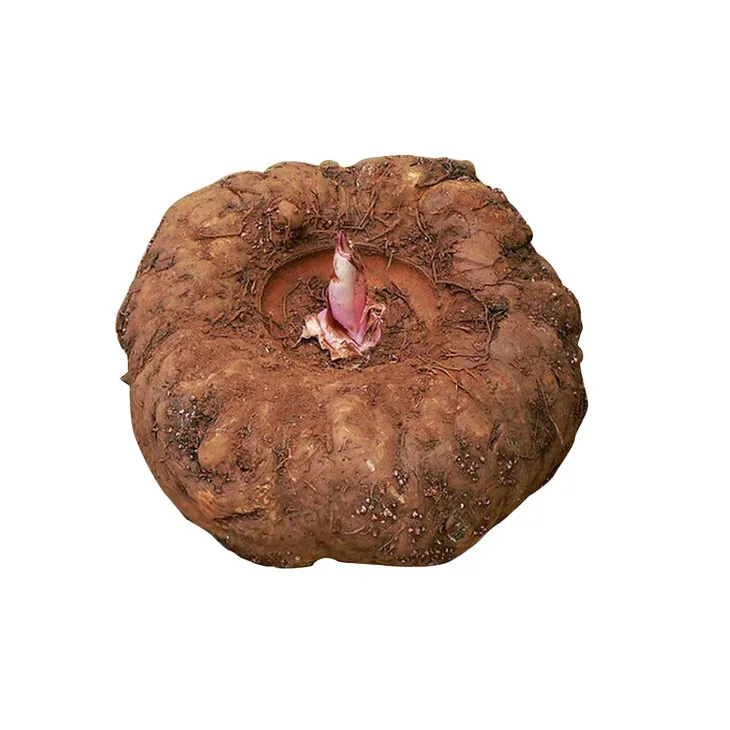
4. Versatility in the Food Industry
4.1 Use in Desserts
In the food industry, organic non - transgenic konjac powder is highly versatile. It can be used to create jelly - like desserts. These desserts have a unique texture that is both smooth and elastic. Konjac - based desserts are often low in calories and can be a great alternative for those who are health - conscious but still have a sweet tooth.
4.2 Noodle Production
Konjac powder is also widely used in the production of noodles. Konjac noodles are becoming increasingly popular, especially among those following a low - carb or gluten - free diet. They have a chewy texture similar to traditional noodles but are much lower in carbohydrates. This makes them suitable for individuals with diabetes or those who are watching their carbohydrate intake.
4.3 Thickening Agent in Soups and Sauces
As a thickening agent in soups and sauces, konjac powder performs exceptionally well. It can give soups and sauces a thicker consistency without adding a large amount of calories. It also imparts a smooth and silky texture to the final product. For example, in Asian cuisine, konjac - thickened soups are common, and in Western cuisine, it can be used to enhance the texture of various sauces.
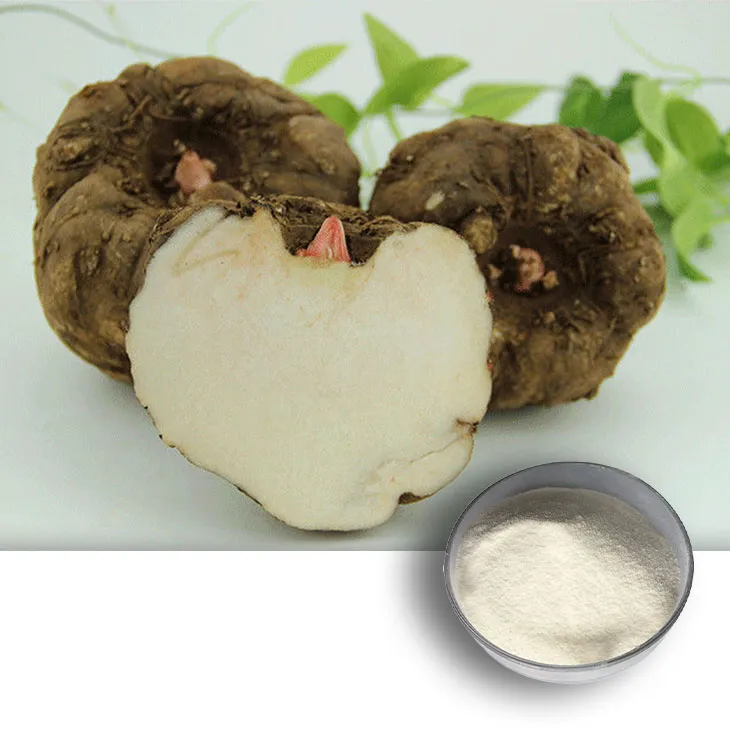
5. Konjac Powder in Asian and Western Cuisines
5.1 In Asian Cuisines
In Asian cuisines, konjac has been used for a long time. In Japanese cuisine, for example, konjac is often prepared in the form of a jelly - like dish called "konnyaku." It is usually served in salads or as a side dish. In Chinese cuisine, konjac can be cooked with various meats and vegetables, adding a unique texture to the dish.
5.2 In Western Cuisines
In Western cuisines, the use of konjac powder is a relatively new trend. However, it is quickly gaining popularity. It is being incorporated into a variety of dishes, such as gluten - free pastries and low - calorie soups. Chefs are starting to explore the unique properties of konjac powder and are using it to create innovative and healthy dishes.
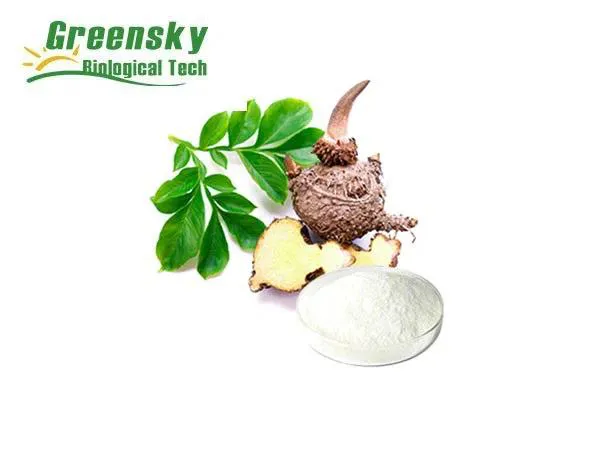
6. How to Incorporate Konjac Powder into Your Diet
6.1 In Drinks
One way to incorporate konjac powder into your diet is by adding it to drinks. For example, you can mix a small amount of konjac powder into your morning smoothie. This will not only add fiber to your drink but also give it a slightly thicker consistency.
6.2 In Baked Goods
If you enjoy baking, you can also use konjac powder in your baked goods. Replace a portion of the flour with konjac powder when making muffins or cakes. This can reduce the overall carbohydrate content of the baked goods while still maintaining a good texture.
6.3 In Salads
Adding konjac powder to salads is another great option. You can mix it with some water to form a jelly - like substance and then add it to your salad. This will add an interesting texture and increase the fiber content of the salad.
7. Conclusion
Organic non - genetically - modified konjac powder is truly a remarkable product. With its numerous health benefits, versatility in the food industry, and its growing popularity in both Asian and Western cuisines, it has a lot to offer. Whether you are looking to improve your digestion, manage your weight, or simply explore new and healthy ingredients in your cooking, konjac powder is an excellent choice.
FAQ:
What are the main health benefits of organic non - genetically - modified konjac powder?
Organic non - genetically - modified konjac powder is rich in glucomannan, a dietary fiber. It aids in digestion by promoting regular bowel movements and preventing constipation. Also, it can absorb a large amount of water, providing a feeling of fullness, which is beneficial for weight management.
Why is the organic" label important for konjac powder?
The "organic" label means that the konjac used to make the powder is grown without synthetic pesticides, fertilizers, or genetically modified organisms (GMOs). This makes it a healthier option for consumers who are concerned about the substances they consume.
How is organic non - genetically - modified konjac powder used in the food industry?
It is highly versatile in the food industry. It can be used to create jelly - like desserts, make noodles, and act as a thickening agent in soups and sauces. It is popular in both Asian and Western cuisines due to its unique texture and properties.
Is organic non - genetically - modified konjac powder suitable for vegetarians?
Yes, it is suitable for vegetarians. Konjac is a plant - based product, and since it is organic and non - genetically - modified, it meets the dietary requirements of vegetarians.
Can organic non - genetically - modified konjac powder help with weight loss?
It can be helpful for weight loss. Because it can absorb a large amount of water and create a feeling of fullness, it may reduce overall food intake, which can contribute to weight management when combined with a balanced diet and regular exercise.
Related literature
- "The Health Benefits of Konjac: A Review"
- "Organic Farming and Konjac Production"
- "Glucomannan in Konjac: Properties and Applications"
- ▶ Hesperidin
- ▶ Citrus Bioflavonoids
- ▶ Plant Extract
- ▶ lycopene
- ▶ Diosmin
- ▶ Grape seed extract
- ▶ Sea buckthorn Juice Powder
- ▶ Fruit Juice Powder
- ▶ Hops Extract
- ▶ Artichoke Extract
- ▶ Mushroom extract
- ▶ Astaxanthin
- ▶ Green Tea Extract
- ▶ Curcumin
- ▶ Horse Chestnut Extract
- ▶ Other Product
- ▶ Boswellia Serrata Extract
- ▶ Resveratrol
- ▶ Marigold Extract
- ▶ Grape Leaf Extract
- ▶ New Product
- ▶ Aminolevulinic acid
- ▶ Cranberry Extract
- ▶ Red Yeast Rice
- ▶ Red Wine Extract
-
Sugarcane Extract
2024-11-30
-
Grape Leaf Extract
2024-11-30
-
Green coffee bean Extract
2024-11-30
-
Phyllanthus Emblica Extract
2024-11-30
-
Red Date Extract
2024-11-30
-
Senna Leaf Extract
2024-11-30
-
Curcuma Longa Extract
2024-11-30
-
Mango flavored powder
2024-11-30
-
Tamarind extract powder
2024-11-30
-
Nutmeg Extract
2024-11-30





















